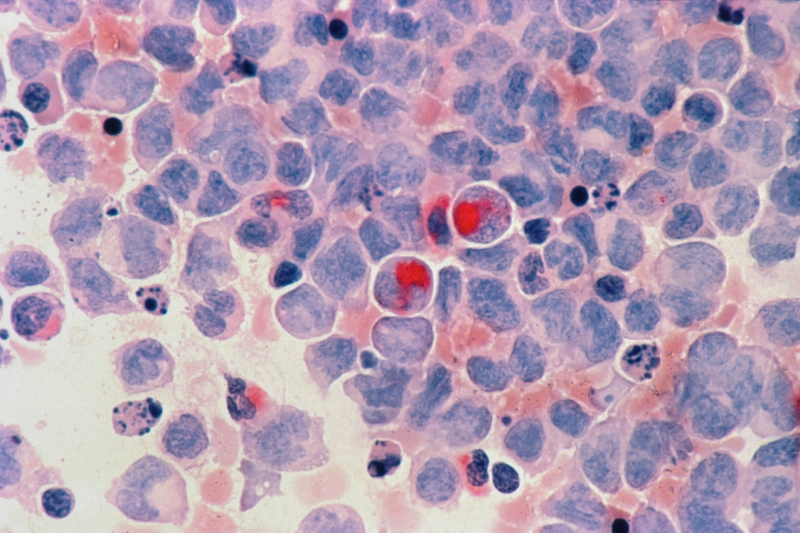By: Ishita Goel
January 19 2022
Misleading: Because NHS resources are being used for the COVID-19 vaccine rollout, thousands of cancer cases are going undetected.

The Verdict Misleading
The U.K. has seen a cancer specialization workforce shortage since pre-pandemic times. The figures in this post are overstated.
In a press conference on December 15, U.K. Prime Minister Borris Johnson addressed the increasing rates of the Omicron variant in the country, where he stressed the importance of vaccination. Further, he thanked the workforce who stepped in the vaccinations drive and asked people to volunteer and support the National Health Service (NHS). After this, several viral posts on Facebook implied that patients are being "left undetected" as NHS resources are being used for the COVID-19 vaccine rollout. On December 12, 2021, Macmillan Cancer Support published a report on the urgent need to hire more nurses under the cancer department during the crisis. The Macmillan polling estimated that around 75,000 patients diagnosed have "missed out on specialist cancer nursing support" since the pandemic in the U.K. Macmillan estimates that around 4,000 additional nurses must be trained by 2030 due to the rising cases of cancer in the U.K. The organization anticipates that about 3.3 million people will be cancer patients in England by 2030. The 2019 Macmillan census of the "adult specialist cancer nursing workforce" projected that around 45 percent of the nurses were eligible to retire (as there aged over 50) and that around 57 percent of breast cancer nurses were eligible to retire. In addition, "even before COVID-19, almost half of the cancer nurses in England (44 percent) told the organization that their workload was negatively affecting the quality of care they can give to cancer patients." On December 9, the NHS reported that "cancer care continues to be at pre-pandemic levels, with more than 225,000 urgent referrals and over 25,000 people starting treatment in September." In August 2021, Michelle Mitchell, Cancer Research U.K's chief executive, projected that "1 in 10 diagnostic posts are vacant, and the U.K. lags well behind the average numbers of diagnostic scanners compared to comparable countries." She says a scan is an essential step to diagnose cancer. The report by NHS on "Build Back Better: Our Plan for Health and Social Care," dated December 3, 2021, said that after the pressures of the pandemic, the "NHS continued to protect and prioritize urgent treatment, such as surgery for cancer and other life-saving operations." It continues: "The Government has already doubled this year's (2021) Elective Recovery Fund to £2 billion, helping NHS organizations in England transform the delivery of services and accelerate the restoration of elective and cancer care." The government says that it is focused on recruiting and training new NHS staff. The "Help Us, Help You" campaign in England has reached out to people to contact them for "vital health service," "particularly if they have symptoms that suggest they might have more serious conditions such as cancer." Evidence by Bristol Myers Squibb (BMS), presented at the U.K Parliament, showed that according to the data, "U.K. patients already experienced poorer pre-pandemic cancer outcomes, with worse survival after five years for five common tumor types compared with six other high-income countries." The report focused on various reasons behind the backlog in cancer treatment in the U.K., including "unmet need and pressure on the NHS cancer workforce in England." Chief Nurse Ruth May has called on "student nurses, medical students and doctors, nurses and other healthcare professionals who have retired to enlist in the NHS COVID vaccine programme." Further, "staffed by over 90,000 volunteers," almost 20 million people have now had their booster jabs in England. GP teams have been asked to clinically prioritize their services to free up maximum capacity to support the COVID-19 vaccination program, alongside delivering critical appointments such as cancer, urgent and emergency care. Some reports have suggested a rise in delays in detecting cancer cases. However, delays in detecting cancer cases have prevailed since pre-pandemic times. A shortage of nurses and healthcare professionals has been an issue for years. It is misleading to say "thousands of cancer cases remain undetected since NHS resources are being used for the COVID-19 vaccine rollout." The numbers stated in the post are overstated. The COVID-19 pandemic has given rise to a lot of potentially dangerous misinformation. For reliable advice on COVID-19, including symptoms, prevention, and available treatment, please refer to the World Health Organization or your national healthcare authority.


